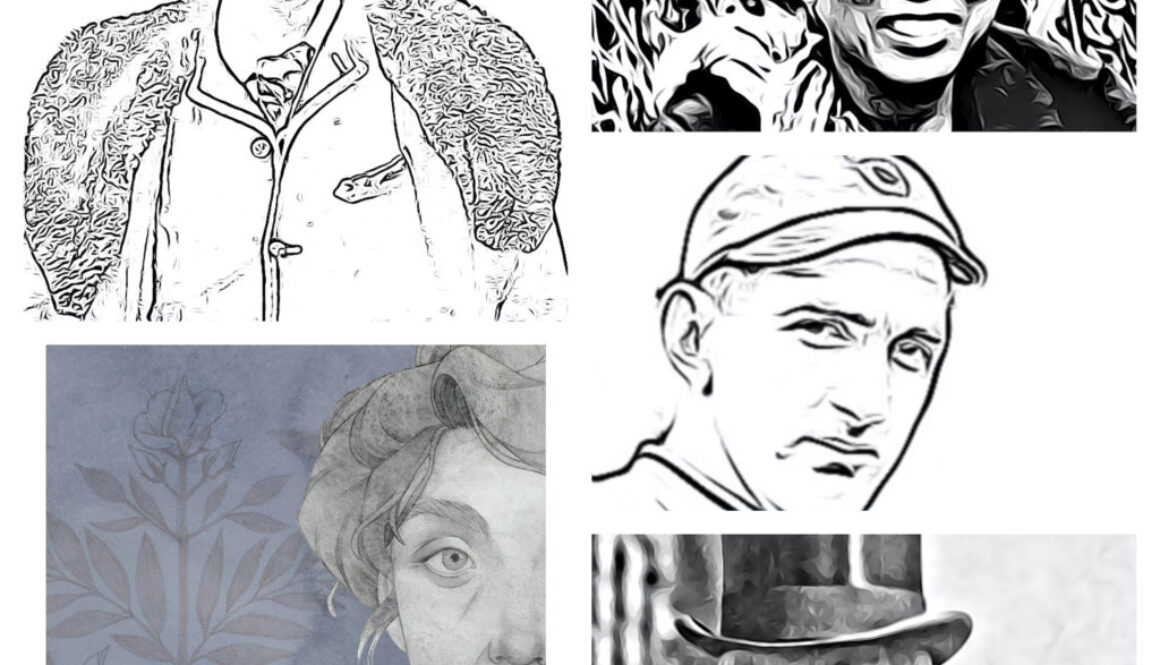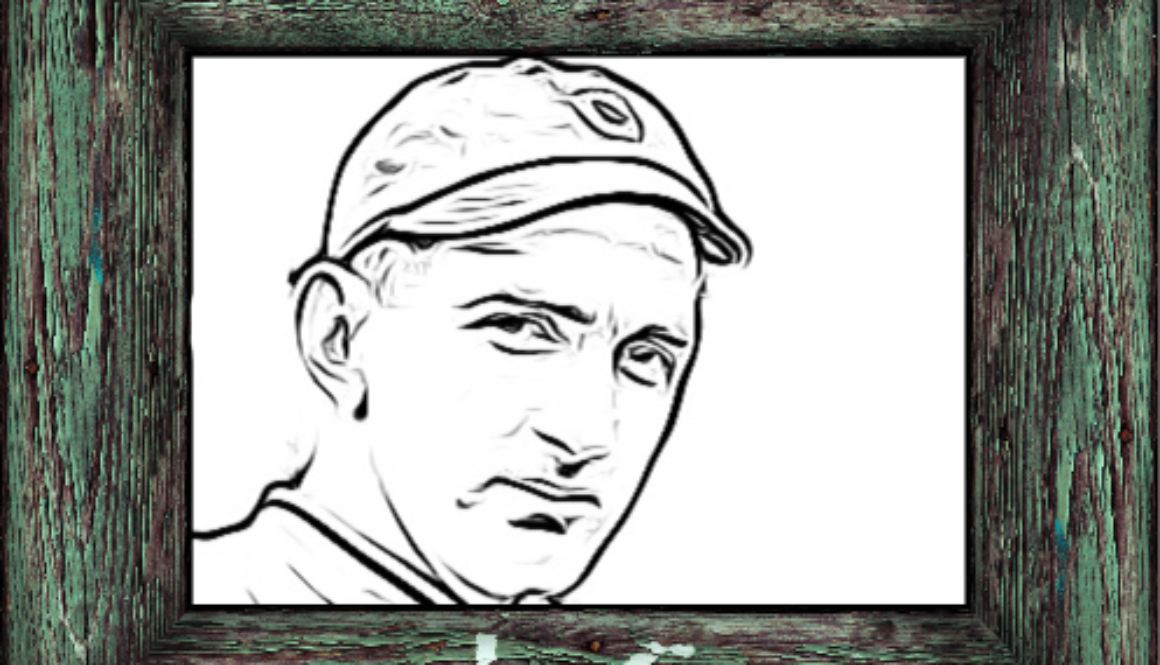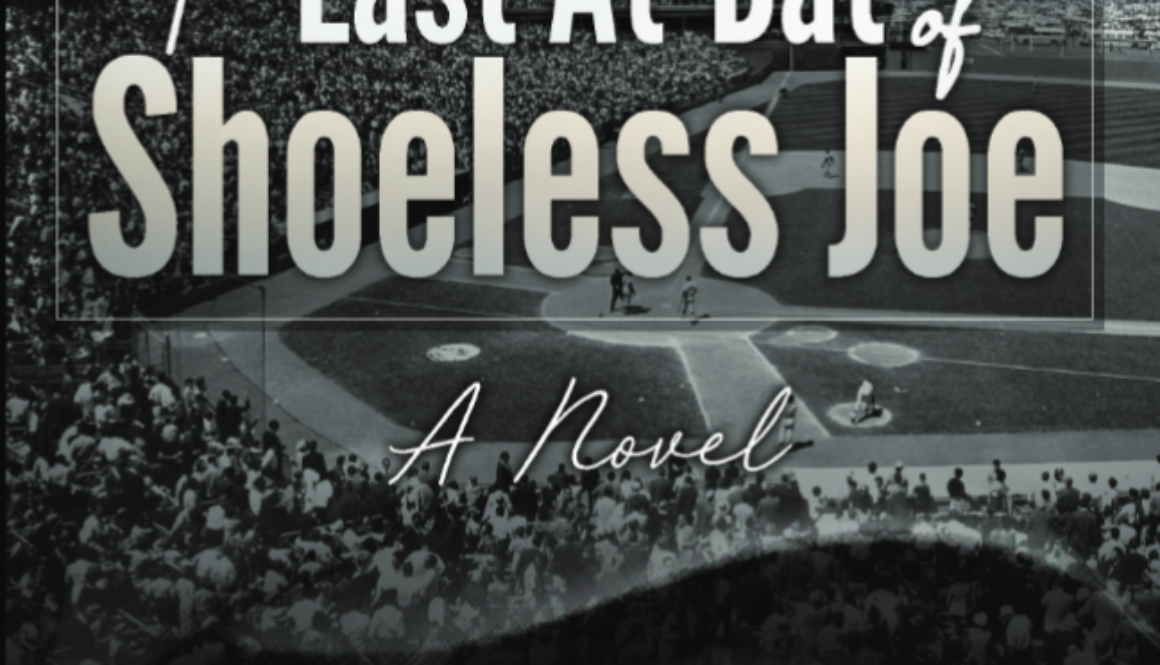The Brooklyn small press, Chickadee Prince Books, has published a number of novels that cover real historical events, and inevitably includes passages in which real-life figures play a pivotal role.
Some of these books feature those historical figures as their main characters, such as Pen Pearson’s Bloomsbury’s Late Rose, which tells the lightly fictionalized story of poet Charlotte Mew, and Granville Wyche Burgess’s The Last At-Bat of Shoeless Joe, which imagines a fictional 9th inning tale for the real-life baseball player, Shoeless Joe Jackson.
Other books, such as Steven S. Drachman’s Watt O’Hugh trilogy, Jay Greenfield’s post-war opus, Max’s Diamonds and Alon Preiss’s political satire, A Flash of Blue Sky, feature real individuals and historical events, in varying degrees of fancifulness, to advance a mostly fictional tale.
Here, four of these authors tell how they get inside the skin of the real-life characters that they have chosen to include in their novels.
Poet Pen Pearson on dramatizing the poet Charlotte Mew
Alone on the Isle of Wight, Charlotte could imagine she was still twelve years old and that Freda, almost two, was her sole responsibility. The Mew children would walk from the farm at Newfairlee to St. Paul’s Church on a dirt road, alongside cow pastures and alfalfa fields swelling with the August heat. Spatters of rain from dark, swollen clouds would stir the dust, and drops would pool on the packed earth like dew on grass. In the gentle rain, the dust, the alfalfa, and the clover would blossom together in a phantasmagoria of scents. Freda would beg to be picked up and carried so her shoes wouldn’t get muddy, and Charlotte would show her how to catch the raindrops on her tongue while Anne and Henry walked ahead of them.
— From Bloomsbury’s Late Rose, a novel by Pen Pearson
The generic designation biographical fiction is oxymoronic, at least on its face.
How could a book about a historical figure be fiction?
Take the above excerpt as an example. What’s fact and what’s fiction?
Charlotte Mew and her siblings — Henry, Anne, and Freda — did spend summers on their uncle’s farm on the Isle of Wight, where their father was born. They did walk to St. Paul’s together. And Charlotte did think of her sister Freda as her own child. Everything else–the dirt road, cow pastures, alfalfa and clover fields, and the meadowlark’s song (in the subsequent paragraph) — were derived from my own memories of summers on my grandparents’ farm in Soldier, Iowa.
In other words, the substance is factual, the remainder, “fiction.”
My aim was to dramatize the essential truth of Mew’s life as I understood it. That understanding came primarily from research, but also from my own experiences, memories and imagination.
Novelist Alon Preiss, on dramatizing the horrible story of Cambodian despot, Pol Pot
With Saloth Sar center stage in the [Cambodian] government, something changed within him. He looked the same, more or less – the same bucktoothed smile, the same round, fat face. But he was different now, a different person lived within him. For when Saloth Sar took control of Cambodia, an ancient Cambodian spirit named Pol Pot settled easily into his body, a spirit that had been waiting silently in the forest for eons. Pol Pot had come into being in the Big Bang, had floated through the universe, through the clouds of gas and the empty space, waiting for man to evolve. But no human ears had ever before heard his name spoken, until that one day when Saloth Sar spoke the name – Pol Pot – for the very first time. He said it in a very quiet voice, hesitantly, but to his ears the name boomed like thunder. Within moments, the country fell to the whim of a dark spirit who thrived on mothers’ tears and the anguished cries of children. Saloth Sar’s soul disappeared, banished forever to some netherworld prison. “Call me Pol Pot,” Saloth Sar’s lips demanded. To the public, he would not admit that he had once been Saloth Sar; he would not admit that he had once been raised by court dancers. He would not admit that he was an eons-old evil spirit inhabiting the body of a gentle, unremarkable man. He claimed instead to be an obscure rubber worker who now, through some happy quirk of fate, just happened to control the life and destiny of seven million people.
— From A Flash of Blue Sky, a novel by Alon Preiss
I’ve been really obsessed with what happened in Cambodia for as long as I can remember; I was especially incensed at the role that a local Congressman, Stephen Solarz, played in reviving the Khmer Rouge as a fighting force, after they were overthrown by the Vietnamese, and re-elevating the Khmer Rouge’s murderous leader, Pol Pot.
Interestingly, to describe the relationship between these two men, Pol Pot and Stephen Solarz, in my novel, I fictionalized Solarz as a character named “Stephen Solomon,” and I made him a senator, but I didn’t rename Pol Pot.
At the time that I began work on the book, both of these terrible men were still alive, although they have both since died, Pol Pot probably murdered, while Solarz was widely repudiated and thrown out of office, and he died in disgrace.
It was easy to explain Solarz’s behavior. Solarz was an amoral American politician, and he thought that his campaign against the Vietnamese would make him look “tough on Communism,” which people cared about during the 1980s, and boost his profile, the Hell with all the people who would die as a result.
But Pol Pot was a different story. He was originally a French-educated intellectual named Saloth Sar, a really nice guy, by most accounts, a gentle soul who was drawn to politics to help the poor, and wound up running the most murderous regime in history.
What could explain the transformation?
In my novel, when Saloth Sar took power in Cambodia, a neak ta prey, an ancient spirit, possessed his body. What happens to people when they get elevated to the head of government? You have these nice fellows, Bill Clinton, Barack Obama, and so on, good students in college, they know people I know, vacation where I vacation. Then they get into politics, and they order assassinations. Pol Pot is just the most extreme example. I couldn’t order someone’s death, sit there in a meeting and order someone killed. How do they do it?
There is something evil lurking in the air, waiting for a human spirit to get that kind of power, and then it swoops in, and that’s the end of that. It may not be an ancient evil spirit, but it’s evil, whatever it is.
Steven S. Drachman on bringing Oscar Wilde to life in the old West
The train pulled out of the station in Denver, puffing smoke, making a racket. A gleeful Oscar Wilde waved from his compartment in the third car, contagiously enthusiastic over what we had all just suffered. I was a bit rueful that he wouldn’t accompany us to [Nebraska]. I’m quite sure he could have done something to distract the gunmen there. And, anyway, I would miss him.
I bumped into him again in 1882 in Arizona, where I saw him take down four other men in a gunfight. The gentleman was good with witty repartee, but he could also shoot, and he could fight. So while I understand him to have been skilled with your “comedy of manners”, the guy was also pretty tough when he wanted to be.
— From The Ghosts of Watt O’Hugh, a novel by Steven S. Drachman
When I was researching my first book, a historical fantasy novel about the adventures of Watt O’Hugh, a Time Roaming shootist in the old West, I decided to set some scenes in Leadville, a really fascinating city in Colorado; it is a sleepy little town now, high up in the mountains, with some appeal for mountain bikers and hikers, but in the 19th century, it was a real metropolis.
I was excited to read about the celebrities who visited Leadville in its prime, and even more excited and touched to learn that Oscar Wilde had included Leadville in his American speaking tour, and that he had been wholeheartedly accepted by the miners there. I included in my book some of Oscar’s own odes to the population (“large, blond-bearded, yellow-haired men in red shirts, with the beautiful clear complexions of those who work in silver mines”), and Oscar became a Watt’s sidekick through some of his more harrowing experiences.
It’s important that in depicting these characters, we hew closely to what is historically known, and never invent situations that contradict what is definitely known about the individual. (I was really critical of a film called Disney Christopher Robin, which reinvented Christopher Robin Milne in extremely ahistorical ways, a pack of lies disguised as entertainment.) I always thought of Oscar as personally extremely brave, and as a result his character developed in some interesting ways as the trilogy progressed. But just as I wound up depicting J.P. Morgan as someone who really didn’t care about money – trapped in a world he never loved – and came to think of him that way, when I read Oscar’s words today, or watch The Importance of Being Ernest, I can’t help but think of Oscar as someone who might well have taken down four Western toughs in a gunfight in Arizona.
In my mind, my Oscar has become the real Oscar, and maybe I’m right.
Granville Wyche Burgess on justice for his hero, Shoeless Joe Jackson
“Don’t do this, Lefty,” Joe implored. “I’m havin’ a great series. You’ve lost a game, sure, but you can win the next one. We can with this thing!”
“It won’t work, Joe. The fix is in. Chick’s been keepin’ us informed. You gotta have something to drink around here.” He moved towards a cabinet, searching.
Joe grabbed him by the lapels. “Forget about the damn booze for once, will ya’? Sure, Gandil’s been talkin’, but I ain’t been listenin’. I don’t wanna know. I just wanna play ball. I wanna win the World Series!”
“You think them gamblers care what you want? What do you think’s gonna happen if we don’t follow through on what Gandil said we’d agreed to? These men are rough. We both got wives, Joe. We gotta think about our families.”
“If they want to have me knocked off, let them do it!”
“You stupid son of a bitch!”
“Don’t call me ‘stupid’!” Joe cocked his hand. Lefty flinched. But Joe suddenly stopped himself, and turned to leave the room.
“Where are you going?”
“I’m talkin’ to Comiskey in the mornin’!” Joe answered over his shoulder.
“Don’t do it, Joe!” Lefty called after him. But Joe was gone. “Dumb Cracker!”
— From The Last At-Bat of Shoeless Joe, a novel by Granville Wyche Burgess
My book is about the historical character Shoeless Joe Jackson and his involvement in the Black Sox scandal of 1919 when 8 Chicago White Sox baseball players were accused of conspiring with gamblers to be paid to lose the World Series on purpose. Since there are no recordings or videos of what actually happened, I enjoyed using my imagination to create dramatic scenes.
FACTS: We know that on October 4, 1919, in the middle of the World Series, a Chicago pitcher, Lefty Williams, came to Shoeless Joe’s hotel room to deliver his part of the payoff. We know Shoeless Joe always claimed he was innocent, that Chick Gandil told the gamblers he was in when he’d told Chick “no!” Here’s part of a scene fictionalizing those facts. Shoeless has thrown the payoff money of the floor. Charles Comiskey is the White Sox owner.
The scene above reinforces Joe’s anger that, because he couldn’t read or write, many people thought he was dumb. It sets up a conflict for him about protecting his wife when he is called to testify in his trial. And it foreshadows Commissioner Landis’ edict banning any player who even listened to talk about a fix and didn’t report it to his boss was guilty.
And all because I knew that Lefty Williams tried to give him some money in a hotel room.
^^^
Granville Wyche Burgess is an Emmy-nominated playwright and novelist. He is the author of The Last At-Bat of Shoeless Joe, a novel about Shoeless Joe Jackson, published by Chickadee Prince, and which is available on Kindle, and in paperback from Amazon, Barnes & Noble and your local bookstore. Follow him on Facebook.
Alon Preiss’s most recent novel is In Love With Alice, which is available from Amazon, Barnes & Noble or from ANY BOOKSTORE IN ANY TOWN OR CITY IN AMERICA.
Steven S. Drachman is the author of The Strange and Astounding Memoirs of Watt O’Hugh the Third, which is available in paperback from your local bookstore, Amazon and Barnes & Noble; it is also available as a Kindle e-book. Read his blog, or follow him on Twitter or Facebook.
Bloomsbury’s Late Rose, Pen Pearson’s novel about Charlotte Mew, is available in paperback and ebook at Amazon, B&N, all over the web, and at your favorite local bookstore. Follow her on Twitter or Facebook.





 Years later, when I read about the scandal, I became convinced of Joe’s innocence and wanted to put the truth, as I saw it, out into the world.”
Years later, when I read about the scandal, I became convinced of Joe’s innocence and wanted to put the truth, as I saw it, out into the world.”
 You believe that Shoeless Joe is innocent in the Black Sox Scandal. What makes you draw this conclusion?
You believe that Shoeless Joe is innocent in the Black Sox Scandal. What makes you draw this conclusion? Growing up in times of segregation, what draws you to stories about injustice, specifically this one?
Growing up in times of segregation, what draws you to stories about injustice, specifically this one?